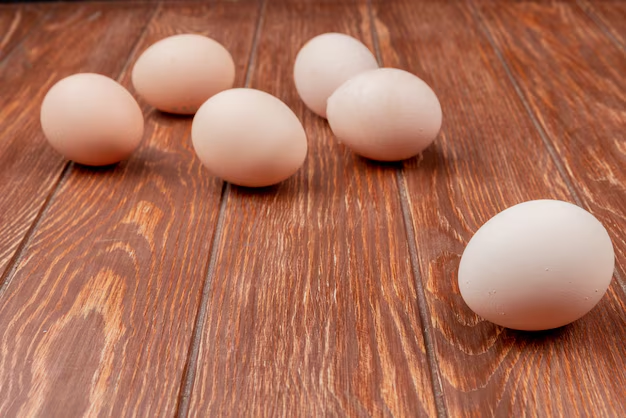How Long Do Eggs Last in the Refrigerator? Your Essential Guide to Egg Storage
Eggs are a staple in kitchens around the world, prized for their versatility and nutritional value. They can be scrambled for breakfast, used to bind ingredients in baking, or transformed into an elegant soufflé for a fancy dinner. But how long do eggs stay fresh once you've brought them home? Understanding the shelf life of eggs in your refrigerator can help prevent food waste and ensure what you eat is safe and delicious.
🥚 Egg Freshness: Understanding Shelf Life
Eggs have natural protective qualities. The shell, along with a thin layer called the cuticle or bloom, acts as a barrier against bacteria. However, once eggs are washed, as they often are before being sold in many countries, they lose this natural protection. This is why refrigeration becomes crucial for maintaining their freshness.
How Long Are Eggs Safe in the Fridge?
When stored properly in their original carton in a refrigerator at or below 40°F (4°C), eggs generally stay fresh for three to five weeks past the date they were packed. The key date here is not the sell-by date but the pack date, which provides the best indication of freshness.
Factors Affecting Egg Shelf Life
- Temperature: Consistent refrigeration is vital. Fluctuating temperatures can cause changes in the egg's interior moisture, affecting quality.
- Storage Method: Keeping eggs in their original carton prevents them from absorbing aromas or flavors from other foods.
- Egg Type: Pasteurized eggs typically have the same shelf life as regular eggs, but always check packaging for specific guidance.
📅 Decoding Egg Carton Dates
Understanding the dates on your egg cartons can help you decide how long your eggs will remain fresh.
Sell-By vs. Pack Date
- Sell-By Date: This is mainly for the store's inventory management, indicating when the eggs should be sold. It does not dictate how long the eggs will be safe to eat.
- Pack Date: Found as a Julian date, where January 1 is 001 and December 31 is 365. This tells you when the eggs were packed.
Is the Expiration Date Different?
An expiration date may also be present on the carton, but this is more of a guideline. Eggs can often be used safely for several weeks beyond this date, up to five weeks from the pack date.
🥄 Practical Tips for Storing Eggs
Storing eggs properly is crucial for maintaining their quality and safety. Here are some best practices:
Ideal Storage Practices
- Refrigerate Promptly: Keep eggs refrigerated as soon as possible once you've brought them home.
- Use the Original Carton: It prevents flavor absorption from other foods and protects against moisture loss.
- Don't Wash Eggs: If your eggs came unwashed (common with farm-fresh eggs), keep them that way until you're ready to use them, preserving their natural barrier.
Where in the Fridge?
Contrary to popular fridge design, the door is not the best place for eggs due to temperature fluctuations. Store them on a middle or lower shelf for consistent cold temperatures.
🔍 Checking Egg Freshness at Home
Even with careful management, you might find yourself questioning an egg's freshness. Here are a couple of methods to help you decide:
The Water Test 🥤
Place the egg in a bowl of water:
- Fresh Eggs: Sink and lay flat on the bottom.
- Slightly Older (but still good): Stand upright on the bottom.
- Spoiled: Float to the surface.
Sniff Test 👃
When in doubt, crack the egg into a bowl and give it a sniff. A fresh egg has a neutral scent. If it smells bad or sulfurous, it's best to discard it.
🍳 Making Sure Eggs Are Safe to Eat
Beyond freshness, you’ll also want to make sure your eggs are safe to eat. Practicing good hygiene when handling eggs is crucial:
Cooking Tips
- Cook Eggs Thoroughly: Especially if you're serving vulnerable individuals, like the elderly or pregnant.
- Avoid Cross-Contamination: Use separate utensils and cutting boards for raw eggs and other ingredients.
When in Doubt, Throw It Out
If you ever suspect an egg might be off, it's safer to dispose of it than to risk foodborne illness.
🌍 Related Topics: Handling and Storing Leftover Egg Dishes
Once you've cooked your eggs, you'll want to ensure any leftovers are stored correctly. Here's a quick guide to managing leftover egg dishes:
How to Store
- Quiches and Casseroles: Store in airtight containers in the refrigerator. Best eaten within 3-4 days.
- Egg-Based Sauces: Usually remain good for 1-2 days.
Freezing Eggs
- Cracked Open: Raw yolks and whites can be frozen, but they do require specific handling to avoid texture changes.
- Cooked: Most cooked egg dishes don't freeze well due to texture changes upon thawing.
✨ Quick Summary: Essential Egg Storage Tips
To simplify your egg storage practices, here’s your quick reference guide:
- 🥶 Keep Eggs Cold: Store below 40°F (4°C) consistently.
- 📅 Mind the Dates: Use the pack date to gauge freshness beyond sell-by or expiration dates.
- ❌ Avoid Door Storage: Use the main part of the fridge, not the door.
- 🥚 Check Freshness: Use the float test and sniff test for eggs past their prime.
- 🔄 Once Cooked: Store leftover egg dishes promptly, and never leave them out longer than two hours.
Understanding how to store and assess the freshness of your eggs ensures that you’re cooking with ingredients that are not only safe but as fresh as possible. As we all aim to reduce food waste and enhance our cooking practices, mastering egg storage is a step in the right direction.

